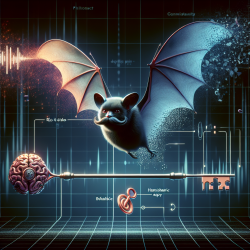Understanding the Environmental Stress Hypothesis
The Environmental Stress Hypothesis (ESH) is a comprehensive framework that explores the relationship between motor difficulties and internalising problems such as anxiety and depression in children. Recent research, including the integrative review by Erskine, Barratt, and Cairney, highlights how poor motor skills can act as primary stressors, leading to a cascade of secondary stressors that exacerbate internalising problems.
Key Findings from the Research
The study synthesizes findings from 38 articles, revealing that poor motor skills are not just isolated issues but can significantly impact a child's psychosocial development. The ESH framework identifies secondary stressors, including interpersonal conflicts and intrapersonal struggles, which can intensify internalising problems.
Implications for Practitioners
For practitioners working with children, understanding the ESH framework can enhance intervention strategies. Here are some key takeaways:
- Identify Secondary Stressors: Recognize interpersonal conflicts and intrapersonal struggles as potential exacerbators of internalising problems.
- Enhance Personal and Social Resources: Focus on building self-concept, social skills, and supportive networks to buffer against stressors.
- Incorporate Physical Activity: Encourage physical activities to mitigate the effects of motor difficulties and improve mental health outcomes.
Encouraging Further Research
While the ESH framework provides a robust model, there is a need for further research to explore additional pathways and variables. Practitioners are encouraged to contribute to this growing body of knowledge by conducting studies that examine novel factors such as prosocial behaviors and global relationships.
Conclusion
Understanding the complex interplay between motor difficulties and internalising problems is crucial for improving child outcomes. By leveraging the insights from the ESH framework, practitioners can develop more effective, data-driven intervention strategies that address both motor and psychosocial challenges.
To read the original research paper, please follow this link: Paediatric motor difficulties and internalising problems: an integrative review on the environmental stress hypothesis.










